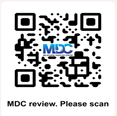Pillcam/Capsule Endoscopy
Other Services:
What is capsule endoscopy?
Capsule endoscopy (Pill Cam) allows examination of the lining of the middle part of your gastrointestinal tract – which includes three portions of the small intestine (duodenum, jejunum, ileum). Utilising a pill sized video camera which has its own light source, is swallowed with pictures being sent of the small intestine to a small recording device that you must wear on your body.
Your doctor will be able to view these pictures later and might be able to provide you with useful information regarding your small intestine.
Why is capsule endoscopy done?
Capsule endoscopy helps your doctor evaluate the small intestine. This part of the bowel cannot be reached by traditional gastroscopy or colonoscopy. The most common reason for the capsule endoscopy is to search for a cause of bleeding from the small intestine. It may also be used for detecting polyps, inflammatory bowel disease (Crohn’s disease), ulcers and tumours of small intestine.
How should I prepare for the procedure?
An empty stomach allows of the best and safest examination, so you should have nothing to eat or drink including water for 12 hours before the examination. Your doctor will tell you when to start fasting. Discuss any allergies or medications as well as medical conditions, such as swallowing disorders and heart or lung disease.
Tell your doctor of the presence of a pacemaker or defibrillator, previous abdominal surgery, or previous history of bowel obstructions, inflammatory bowel disease or adhesions.
What can I expect during capsule endoscopy?
Your doctor will prepare you for the examination but applying a sensor device to your abdominal with adhesive sleeves (like tape). A pill size capsule endoscopy is swallowed and passes naturally through your digestive tract while transmitting video images to a data recorder worn on your belt for approximately eight hours. At the end of the procedure you will return to the office and the data recorder is removed so that images of your small bowel can be put on a computer for physician review.
Most patients consider the test comfortable. The capsule endoscopy is about the size of a large pill. After ingesting the capsule and until it is excreted you should not be near an MRI device or schedule an MRI examination.
What happens after capsule endoscopy?
You will be able to drink clear fluids after two hours and eat a light meal after four hours following the capsule ingestion, unless your doctor instructs you otherwise. You will have to avoid physical activities such as running or jumping during the study. Your doctor generally can tell you the test results within a week following the procedure, however the results of some tests might take longer.
What are the possible complications of capsule endoscopy?
All the complications can occur, they are rare when doctors who are specially trained and experienced in this procedure perform the test. There is potential for the capsule to be stuck at a narrowed spot in the digestive tract resulting in bowel obstruction. This usually relates to a stricture (narrowing of the digestive tract from inflammation), prior surgery or tumour.
Signs of obstruction include unusual bloating, abdominal pain, nausea and vomiting. If these symptoms occur please inform the MDC office immediately.

